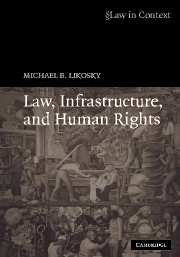5 - Antiterrorism
Published online by Cambridge University Press: 09 December 2009
Summary
Introduction
Terrorists persistently single out infrastructure projects for attack. Al-Qaeda operative-controlled airplanes struck the World Trade Center dealing a blow to the U.S. banking and financial infrastructure. With the bombing of the Spanish commuter trains and the U.K.'s tube and bus system, the countries' transportation infrastructures were a target. The anthrax scare in the United States commandeered the postal infrastructure. Every indication is that infrastructures will continue to be an important battlefield for attack and defense. Richard A. Clarke, former Chairman of the U.S. Critical Infrastructure Protection Board, tells us: “Before Sept. 11, [al-Qaeda] was interested in killing as many people as possible … After Sept. 11, [Osama bin Laden] starts talking about going after the economic infrastructure of the United States.” The FBI has reinforced this. And, Hamad Ressam, a terrorist suspect, identified oil infrastructure as a site of future attacks. Responding to the targeting of infrastructures, governments are devising counterterrorism strategies.
Although conventional warfare prefers to avoid civilian targets, the terrorist military campaign nonetheless shares much in common with its tactics. Infrastructure projects are a basic target of modern air-powered wars. The Kosovo and 1991 Iraq wars evidence this. However, although conventional warfare strikes at “dual use” targets, the terrorist attacks single out civilian targets. “Dual use” infrastructures are ones that serve both civilian and military purposes. Conventional warfare aims to strike at primarily military targets, recognizing that there may be civilian consequences.
- Type
- Chapter
- Information
- Law, Infrastructure and Human Rights , pp. 89 - 111Publisher: Cambridge University PressPrint publication year: 2006



